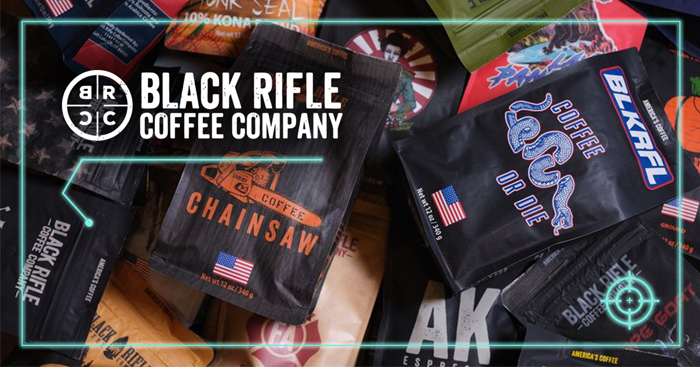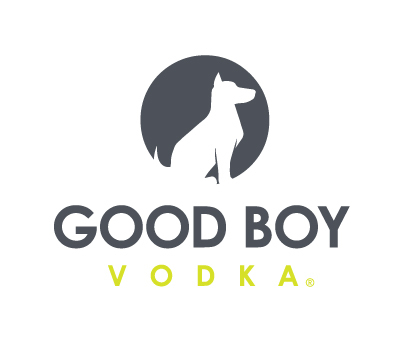Black Rifle Coffee Company to Go Public After SPAC Merger

Black Rifle Coffee Company is going public after it announced this week it will merge with a special purpose acquisition company (SPAC) in a deal that values the military-focused brand at $1.7 billion.
The Salt Lake City-based coffee maker announced yesterday that it has agreed to a merger with SilverBox Engaged Merger Corp I (SBEA), a SPAC which trades publicly on the NASDAQ stock exchange and is sponsored by SilverBox Capital, itself a joint venture between Boxwood Capital, Helena Capital, and Silver Rock Financial LP, and Engaged Capital.
Black Rifle is expected to receive $225 million in the transaction, which will be used to fuel growth and omnichannel expansion. The combined company will be renamed BRC Inc. upon closing.
The deal comes amid increased interest in SPACs — sometimes called “blank check companies” — with hundreds of new ventures entering the market over the past 18 months, driven in part by a rise in retail traders and investors during the pandemic. SPACs are publicly traded and therefore provide an easier path to going public for private companies. Within the CPG space, biltong snack brand Stryve Foods was acquired by a SPAC this winter and multiple experienced food and beverage investors have put their weight behind SPACs with an eye on natural and better-for-you brands.
“As a company founded and led by Veterans, serving these communities drives everything we do,” said Evan Hafer, founder and CEO of Black Rifle, in a press release. “I’m so proud to join with the SBEA team and have the confidence of investors such as Engaged Capital. They’re completely in support of our mission and they’ve aligned their financial interests with our Company’s performance. This combination will provide the capital BRCC needs to grow, serve great coffee, and move us closer to our goal of hiring 10,000 Veterans as we open more stores nationwide.”
Joe Reece, executive chairman of SBEA, added: “We have aligned our sponsor interests to BRCC’s performance because we are such strong believers in the Company’s future as it gains the capital necessary to accelerate its growth, expand its offerings, consistently delight customers and give back to the communities in which it operates.”
Founded in 2014 by Hafer, a former Green Beret, Black Rifle’s retail business includes packaged coffee beans, an RTD cold brew line and, as of June 30, seven cafes around the country with plans to open nine more locations by the end of fiscal year 2021. According to the company, total revenue between 2019 and 2020 grew 100% from $82 million to $164 million, with the bulk of that growth coming from direct-to-consumer sales, which were up 92% between 2019 and 2020. Its wholesale business also grew triple-digits in the period, up 182% to $24 million, while its retail cafes — called “Outposts” — contributed $3 million to top-line growth. Gross profit grew 94% in the period to $69 million.
Since launching last spring, Black Rifle’s RTD coffees have reported $21.7 million in retail dollar sales year-over-year through August 8, according to data from IRI, nearly double the sales of Peet’s brand iced coffees but below entrepreneurial brands like La Colombe and Super Coffee. The drinks are available in Walmart, Sam’s Club, H-E-B, CVS, Publix, Sheetz, EG Group, Speedway, 7-Eleven and Kum & Go, among other retailers. The company also sells whole coffee and merchandise in lifestyle stores including Bass Pro Shops, Cabela’s, Scheels and 5.11 Tactical.
At $10 per share, Black Rifle’s valuation stands at $1.7 billion, approximately four times projected 2023 revenues, according to the company. The additional financing from the merger will support the expansion of its wholesale business with new innovations and distribution and the goal of operating 78 Outpost locations before 2024.
Black Rifle’s founders, management team and equity holders will subject 20 million shares to forfeiture, with 10 million to be forfeited if the stock price does not appreciate by at least 50% within five years and another 10 million to be forfeited if it does appreciate at least 100% within seven years.
Black Rifle’s rise has come as the coffee category continues to see significant growth, with RTD retail sales up 21.7% to $3.3 billion in the 52-weeks ending October 23, according to NielsenIQ.
The brand itself has gained prominence through its position as an overtly patriotic, pro-Veteran company that serves as an alternative to mainstream competitors like Starbucks. Among the brand’s target demographics are active duty and former military members. However, in a conference call this week announcing the merger, the company noted it only has 17% brand recognition among military members, providing a long runway for growth.
In 2017, the company grew awareness when it announced a plan to hire 10,000 veterans in response to a pledge by Starbucks to hire 10,000 refugees, following former -President Donald Trump’s executive order barring refugees from entering the country. The announcement was divisive along political lines on social media.
But although the company did not yet have the resources to hire 10,000 employees, the plan was anything but tongue-in-cheek. Black Rifle now has over 600 employees of which about half are veterans.
Now, as part of the SBEA meger, the company will reorganize as a Public Benefit Corporation with a mission to help veterans, active duty military members and first responders and the plan to eventually hire 10,000 veterans remains in place. In the conference call, the company said it will donate over $3 million worth of coffee products to military and first responder units and over $1.2 million cash to charitable organizations by the end of 2021.
More recently, however, Black Rifle has been caught in controversy as partisan politics grow more divisive. Last year, the brand released a statement to distance itself from Kyle Rittenhouse, the Illinois teenager charged with killing two people at a Black Lives Matter protest in Kenosha, Wisconsin last year, after he was photographed wearing a Black Rifle T-shirt while out of jail on bail — which led some on social media to wrongly believe Rittenhouse was officially connected with the brand. The company was also scrutinized after a man seen with zip tie restraints during the January 6 Capitol riots in Washington, D.C. was photographed wearing a Black Rifle hat.
In a New York Times profile of the company in July, Black Rifle EVP Mat Best said the company cannot be held responsible for small factions of its consumer base, noting that “there are things in business, when you grow, that are completely outside your control.”
BevNET has reached out to Black Rifle Coffee Company for comment and will update this story as it develops.
















